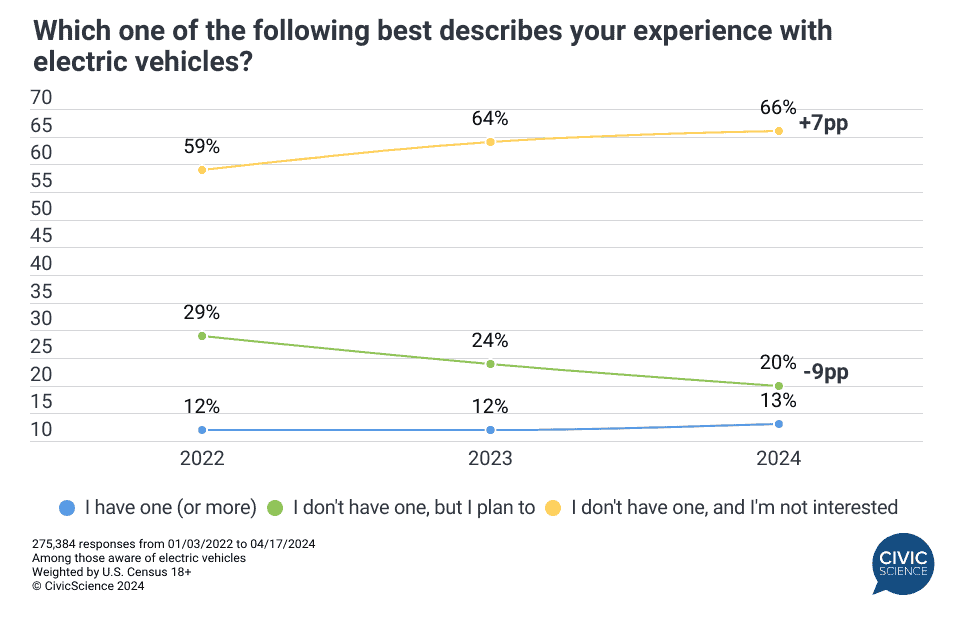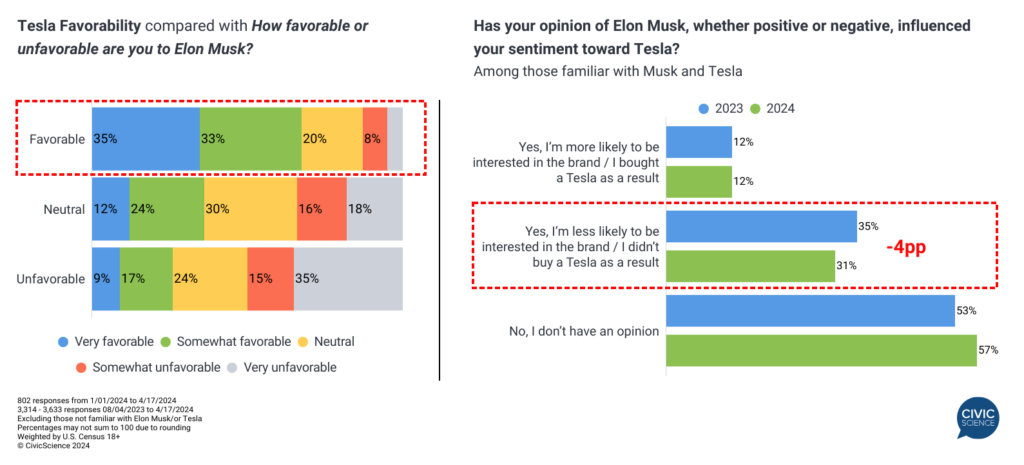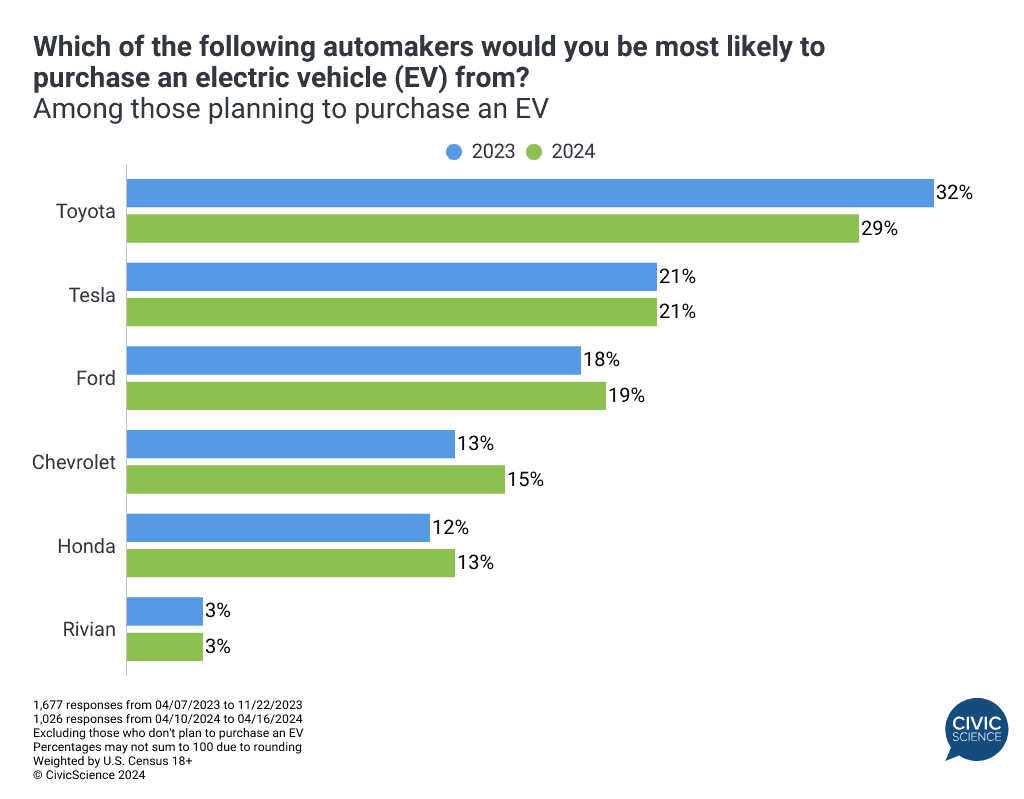The roads facing EV automaker Tesla have been bumpy so far in 2024, including the company’s first annual decline in vehicle deliveries since 2020. Another speed bump emerged this week as Tesla CEO Elon Musk announced in a company memo plans for extensive layoffs, including over 10% of the global workforce, coinciding with a 5% drop in Tesla stock on top of an overall downturn in recent months.
Given these recent developments, where does consumer sentiment lie for Tesla versus its competitors? And how much influence does Elon Musk himself have on shaping consumer interest in Tesla?
Overall EV Interest and Intent Declines
Tesla’s struggles may be indicative of declining overall electric vehicle intent, as consumers increasingly cite cost, infrastructure, and safety concerns. Data collected from January to April show 66% of consumers neither own nor have an interest in purchasing an EV, reflecting a YoY increase of seven percentage points since 2022. Among those without ownership but with purchasing intentions, there has been a notable nine-point decline to 20% over the same timeframe. Conversely, the proportion of individuals indicating current ownership of one or more EVs has held relatively stable at around 13%.

Join the Conversation: Have you ever considered buying a Tesla?
The Elon Effect Shapes Purchasing Decisions Around Tesla
Additionally, Musk’s public persona may have contributed to Tesla’s rough ride. It’s no surprise that most Tesla fans also favor Elon Musk (67%) — including 35% who are ‘very’ favorable — while just 13% of Tesla fans hold an unfavorable view of Musk. Conversely, 50% of those who do not like the Tesla brand also express dislike for Musk.
New polling data show a notable 43% of those familiar with both Musk and Tesla report that their opinion of Musk has some influence on their sentiment toward the Tesla brand. Among them, over 3-in-10 say their views on Musk have dampened their interest in Tesla, compared to 12% who say their admiration for Musk has spiked their interest or prompted a purchase.
Although Musk’s influence on Tesla sentiment is overwhelmingly more negative than positive, the percentage of consumers who are ‘less’ likely to purchase a Tesla due to Musk has fallen by four points since August of last year, alongside increased neutrality.

Tesla Is Not the Preferred Automaker for Those Eyeing EVs
Finally, growing competition from other EV makers is likely cutting into Tesla’s market share. When asked which automaker consumers who are considering purchasing an EV would most likely purchase from, it’s not Tesla that emerges as the leading choice. That title currently belongs to Toyota, despite a three point decrease over last year to 29%. Tesla lands in the second spot in automakers studied and has held steady at 21% over the past year. Data has shown these two competitors attract very different types of consumers, which CivicScience has previously explored.
Additionally, EV intenders expressed increased interest this year in options from Ford, Chevy, and Honda, even as Ford has begun slowing its own EV production.

Take Our Poll: How favorable or unfavorable is your opinion of Elon Musk?
As overall EV intent and interest among Americans falls and automakers compete for a dwindling field of intenders, data suggest perceptions of Elon Musk could become an increasingly important factor in determining Tesla’s future.
Want to stay on top of the latest EV and auto industry trends and how they are impacting consumer behavior? Click here to see how CivicScience clients use the 500k question database of the InsightStore™ to anticipate changes before they happen.








